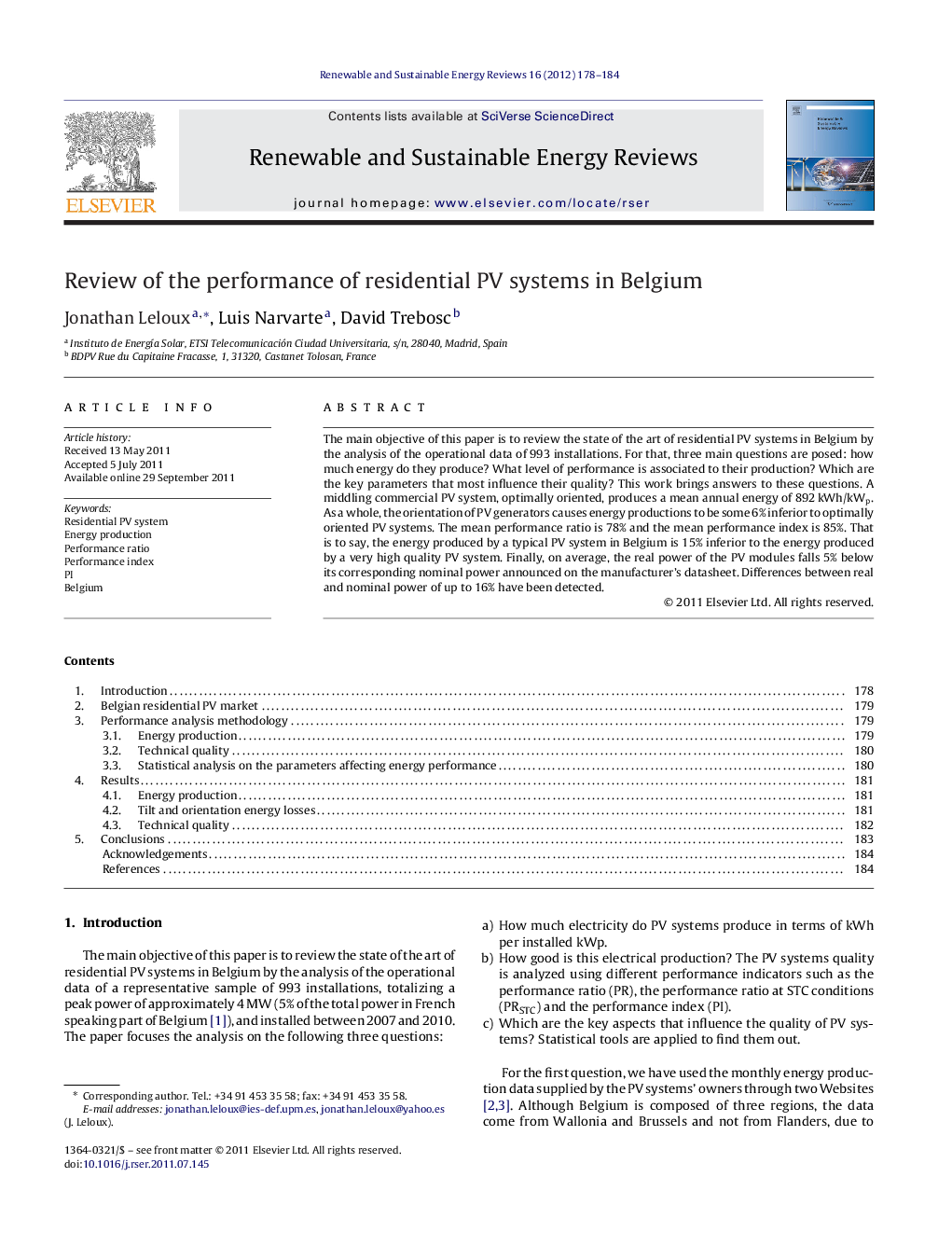| Article ID | Journal | Published Year | Pages | File Type |
|---|---|---|---|---|
| 1751244 | Renewable and Sustainable Energy Reviews | 2012 | 7 Pages |
The main objective of this paper is to review the state of the art of residential PV systems in Belgium by the analysis of the operational data of 993 installations. For that, three main questions are posed: how much energy do they produce? What level of performance is associated to their production? Which are the key parameters that most influence their quality? This work brings answers to these questions. A middling commercial PV system, optimally oriented, produces a mean annual energy of 892 kWh/kWp. As a whole, the orientation of PV generators causes energy productions to be some 6% inferior to optimally oriented PV systems. The mean performance ratio is 78% and the mean performance index is 85%. That is to say, the energy produced by a typical PV system in Belgium is 15% inferior to the energy produced by a very high quality PV system. Finally, on average, the real power of the PV modules falls 5% below its corresponding nominal power announced on the manufacturer's datasheet. Differences between real and nominal power of up to 16% have been detected.
